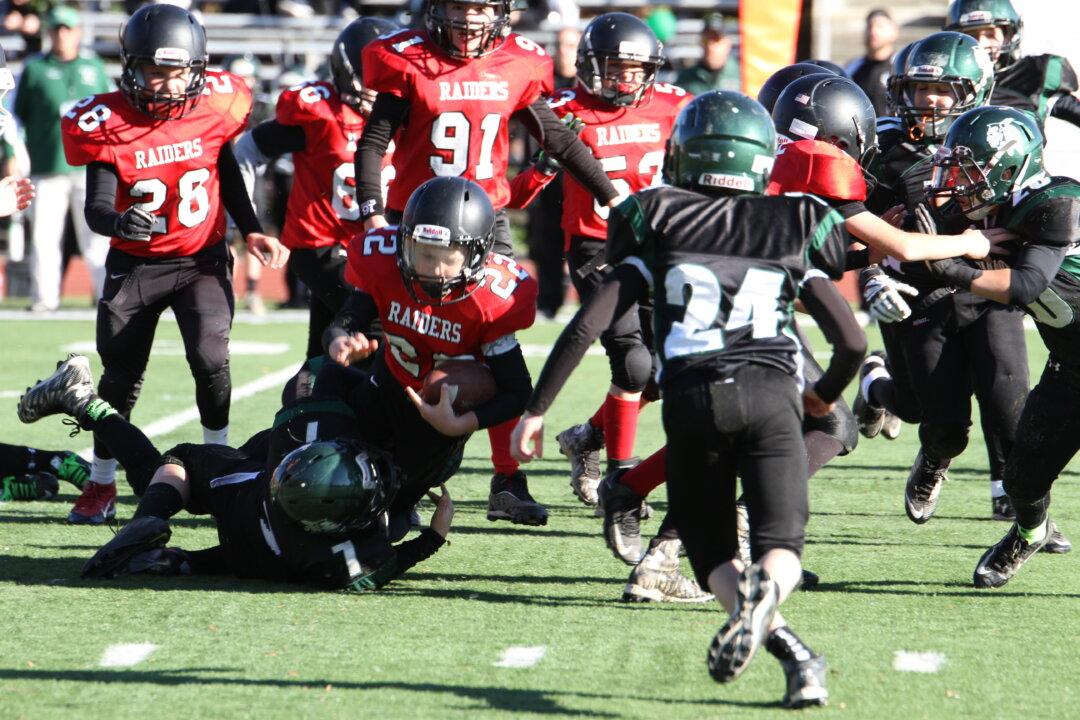SACRAMENTO, Calif.—More than 100 parents, coaches, young football players, and opponents of legislation intended to ban tackle football for children under the age of 12 showed up at the Capitol on Jan. 10 to attend a hearing to discuss the issue.
Most were forced to wait in the hallway watching the meeting on a screen outside room 127 where the Assembly’s Arts, Entertainment, Sports, and Tourism Committee discussed Assembly Bill 734—introduced by Assemblyman Kevin McCarty (D-Sacramento) to protect children from brain injury by prohibiting youth tackle football.





